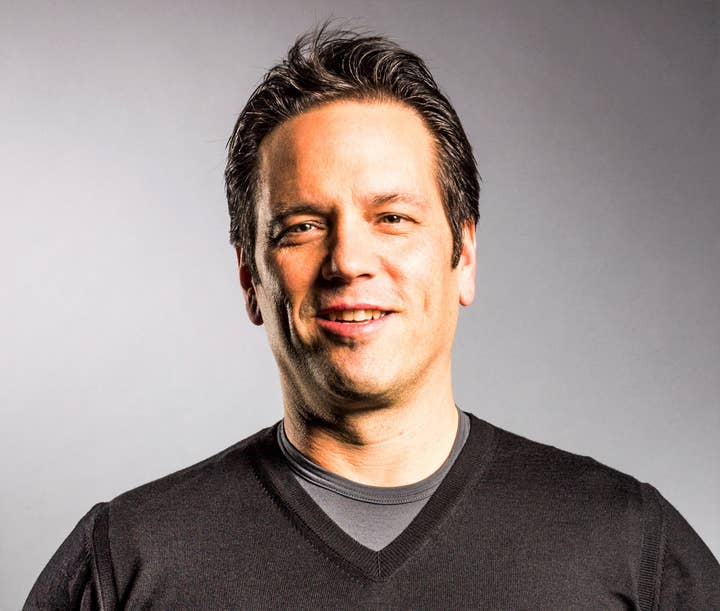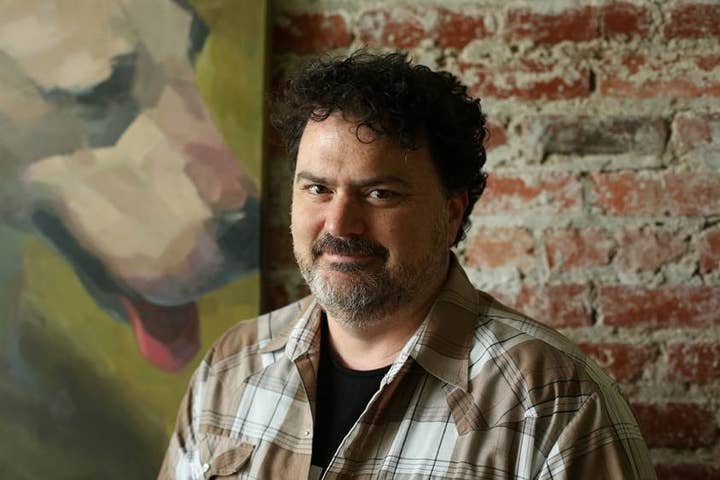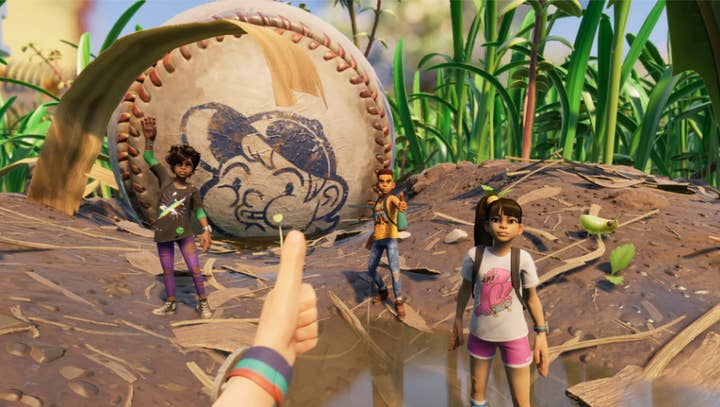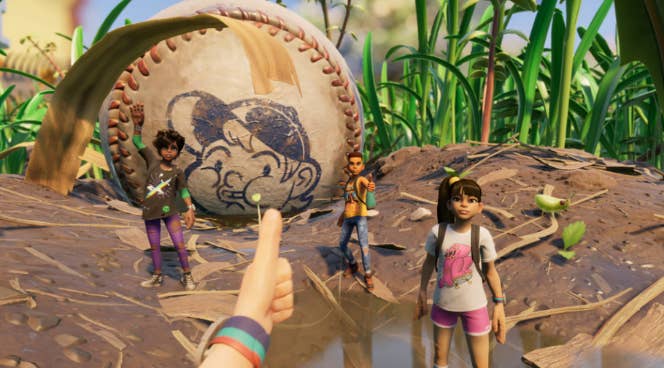Developing for Xbox Game Pass: "I could never pitch these ideas to a publisher"
Xbox, Double Fine, Obsidian, Mojang and InXile discuss how Game Pass is changing the games they make
This is part of a series of features with Xbox Game Studios. Check out the teams discuss life as a Microsoft-owned company here, and their thoughts on Microsoft's Xbox Series X strategy here.
"All day yesterday I went through our full review of our July 23rd show," begins Xbox chief Phil Spencer.
"My role is different now. I get to sit back and watch more as a consumer. One of the things that really strikes me is the creative diversity in the portfolio. I am a fan of Xbox, obviously, but I don't mind going to 'are we the shooter box?' is it 'Gears, Halo, Forza, Gears, Halo, Forza'? I know all the memes about us. And I look at what the teams have built already this year, the things that we're going to show, and the things that are coming out later this year, and it is high quality, very different, and takes some creative risks."

Xbox wants to bring in new players. Ones that perhaps are not quite so obsessed with driving fast cars and shooting aliens. It's wanted this for a long time. It's why it built Kinect, and commissions games like Screamride and Viva Pinata. But this time the company hopes to do it through a series of big studio acquisitions that it's made over the past two years, alongside games created by its established teams, like Rare and Mojang.
The drive for more diverse content is directly linked to Game Pass, the subscription service where players pay a monthly fee to access a library of games. From the start, Xbox made it clear that its studio acquisition strategy is all about getting subscribers, rather than simply selling more consoles.
"Because of Game Pass, I can see where we fit in," says Tim Schafer, studio head of Double Fine, which Xbox acquired in 2019. "There are not a lot of studios making brightly coloured, funny, family-friendly games. Well, we try to be funny."
"Are we the shooter box? Is it Gears, Halo, Forza, Gears, Halo, Forza? I know all the memes about us"
Phil Spencer, Xbox
He continues: "It does make me think about some of the crazy game ideas we've had, and some of them you're just like... I can never pitch this to any publisher. I would never get this signed. But I am now opening up that folder of documents again, and going 'oh I really love this idea, I bet I could do that now'."
Microsoft wants diverse content for Game Pass, but at the same time it's eager not be prescriptive. Xbox Game Studios head Matt Booty says his job is to get out of the way and let the creators come up with the ideas.
But what if those ideas don't fit with what Game Pass needs? What if Microsoft needs more kids games, but all of its teams are pitching adult-rated content?
"I think of Game Pass as a platform, and whenever I say that it kind-of confuses people," says Spencer. "But it has some of the traits of a console. We definitely look at what people want to play, and what we think they might want next. But we've also found some of the biggest successes in Game Pass were complete surprises to us. The friction for the player to try that next game is basically zero, I mean you have to download the game, but outside of that, you see a box, you see a studio that you know, you see some blurb, and you can just try it. And we've seen games reach millions and millions of players through that. So we try not to get overly prescriptive thinking that we know what people want to play. We try not to genrefy Game Pass.
"But I do take your point with age ratings. We want to make sure that our portfolio has games from multiple ratings. But we don't get prescriptive by saying we need three of these and four of those."

Booty adds: "We are very fortunate to have multiple ways in which content can come onto our platform. Our studios are just one part of it. We also have the ID@Xbox programme, which can bring in an entirely different type of indie content. Then of course we have all our relationships with third-party publishers.
"But with things like Game Pass and the studios we've brought in during the last year, it's all still fairly new. We're still in the growth phase and seeing how this all works. As the idea of Game Pass matures, and as our studio system matures, then we might start to think about... is there a certain type of game that we need to have more of an investment in? That's a growth phase kind-of thing. But right now, I feel really good about optimising for diversity of content. That's what we've really gone after. And we're only able to really do that because we have ID@Xbox bringing in so many good titles, and our third-party team working with the big publishers. The matrix of all of that makes it work."
A lot of the diverse games that Booty and Spencer is talking about are expected to come from the newly acquired studios, which have a remit to do different things. But what about some of the more established studios? The ones responsible for the big franchises like Halo, Gears, Forza, Minecraft and Age of Empires? Could The Coalition, which has spent its life making Gears of War games, suddenly decide to make a kids platformer?
"I am now opening up that folder of crazy game ideas again"
Tim Schafer, Double Fine
Booty laughs: "If they decided that's what they wanted to do, we'd certainly have the conversation. But one of the things about our bigger franchises, is that there's a lot of room to experiment within those franchises. I look at something like Halo, and it's starts with a universe, a fiction, and there's so many different types of things that we can do around that. If we look at Gears of War... it's funny, you mention a kids platformer, now we didn't quite make a kids platformer, but I look at what we did with the Gears Pop! game, and that was thinking about ways we can bring in other audiences.
"I get where you're coming from. But for me, I see those things as a little like Star Wars, right? Oh, I've got to go work on Star Wars. What else is there to do? But they've got things like The Mandalorian and Clone Wars. If you've got a rich universe, you just have a lot of surface area that you can just go out and explore."
Outside of the genres available in Game Pass, there is still some uncertainty over how to approach making games for a subscription service. Mojang didn't think about Game Pass during the development of its recent release, Minecraft Dungeons. But it was aware that players might be more likely to abandon the game if it didn't win them over quickly.
"The [Dungeons] team spends very little time thinking about ways to change the game to make it fit inside of Game Pass," says head of Mojang Helen Chiang. "But we know we are going to get players who are maybe less sticky in the beginning, because they didn't have to buy the game. So do we need to work a little harder to make sure they don't churn in the early days? Those are some of the things we think about."
Echoing Schafer's comments about opening that folder of crazy ideas, Obsidian boss Feargus Urquhart feels that Game Pass will enable the RPG studio [which Microsoft acquired in 2018] to create things that wouldn't get approved otherwise. Such as its upcoming survival game, Grounded.
"This isn't anti-publisher, but try to sell a publisher on something strange, and they're like 'if we put money in this, how are we going to make that back?' Which is absolutely the right way to look at it. Game Pass emboldens us to go 'we think this could be super cool', and there's people who can just try it.
"I read this book [Free: The Future of a Radical Price], and they did some study where they offered chocolate on a campus. It was 11 cents for a nice piece of chocolate and one cent for an average piece. And they got a good smattering of people across both price ranges. They then lowered both by one cent, and everybody just took the free chocolate. Even though it was just a penny different. [Game Pass] gives us the opportunity to make things that are new, and people will try them because they're not making a judgement call. They're not spending that penny. That absolutely has changed how we look at different conceptual stuff, which are not 100-person teams working on things.
"That helps us internally as well, as we have this idea where people can rotate between the products. They can go and do something different, and then go back to a big RPG."

Brian Fargo, who leads another of Microsoft's new studios InXile, ponders whether Game Pass will change how he releases and supports his games.
"We can do maybe more DLC because there are more live customers all the time. And DLC could be something very short, very long, we can start thinking about mod communities..."
He continues: "Maybe we are still going to make a 60-hour game, but not at launch. Maybe it's a third of that, and then we bring the content out over a period of time. There are opportunities where you don't feel the need to maybe step-up and put out that size of game with Game Pass. But we still have to feel it is a compelling, fulfilling experience no matter what that hour length is. We could have a fun, philosophical debate about a 20-hour game vs a 50-hour game. I play a lot of these products, and oftentimes I find myself saying 'I'm ready to win now', but I have 20 more hours to go."
Fargo touches upon a recent debate that has flared up in the games space, which is whether modern AAA games need to be as long as they are. There's a notion that developers feel obligated to make their games longer to ensure they are successful. Does Game Pass perhaps relieve that issue?
"We've also found some of the biggest successes in Game Pass were complete surprises to us"
Phil Spencer, Xbox
Urquhart isn't convinced. He points to the fact Obsidian has made big RPGs like Fallout, and shorter ones like South Park. And the deciding factor for the length of these titles was the game and its audience, more than anything else.
"A 60-hour South Park game didn't seem appropriate," he says. "But then you look at Fallout: New Vegas, and the intent there is to let people live in that world for a really long time.
"As it relates to Game Pass, you'll love this answer, but I don't know. You could do something episodic like The Walking Dead, but I don't want to play Fallout: New Vegas for 10 hours and then wait for the next 10 hours. I want to go around this world. We are going to figure out how you apply gameplay hours to what is on Game Pass. But you need to be cognisant of the player and the type of game.
"Now I do think in the long term that some people don't have an appetite for as long games. There is a group. But that's not about Game Pass."
Schafer concludes that long games, short games, single-player, multiplayer, sequels or new ideas, the thing that's proving exciting about Game Pass is that, right now, Microsoft wants all of it.
"You can be a game of any type and length on Game Pass. I think the game talks to you while you're making it and tells you what size it needs to be. When you're talking about a single purchase, there is a value proposition. 'Well this game I can play for thousands of hours, whereas this one I can't'. People do think about that.
"But this is the oldest question in games. I've been doing this for 30 years and back at LucasArts we were having this same exact conversation about the fact we always put '40 hours of gameplay' on the back of the box. And we'd be like: couldn't we just make smaller games and explore a little idea rather than this giant idea? Now we can do both. We can have it all."









